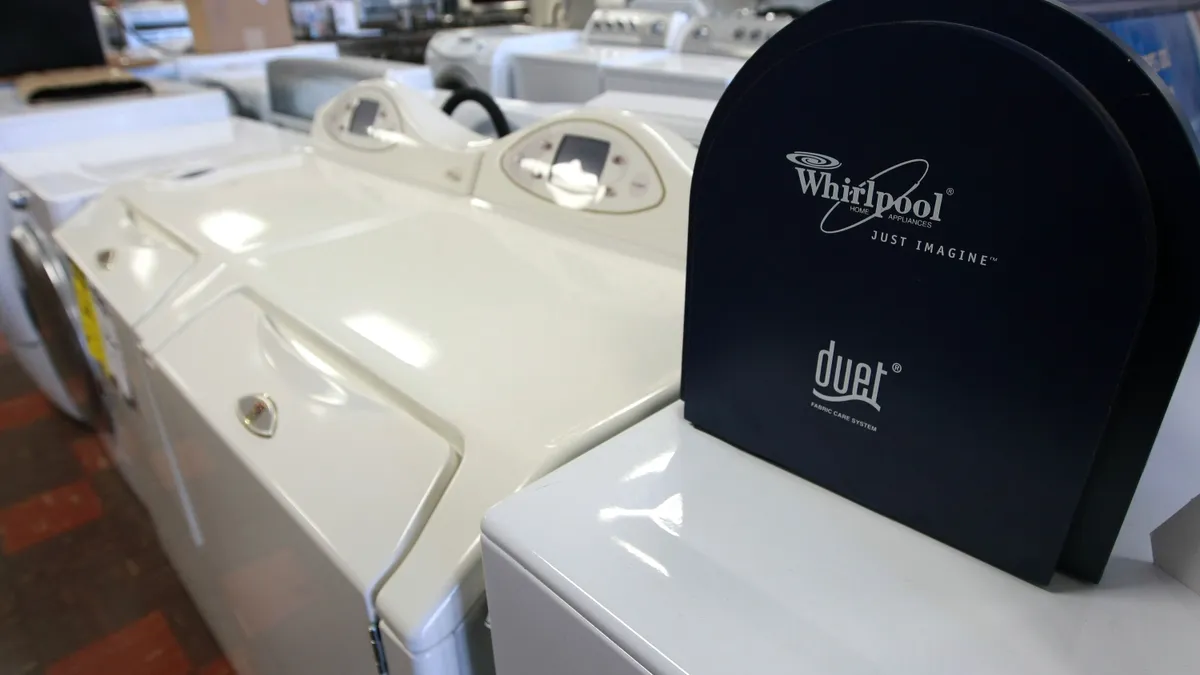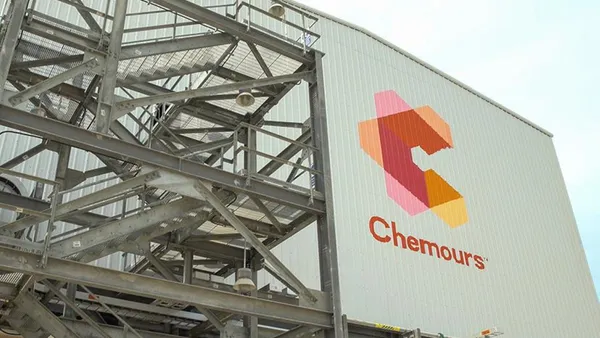Dive Brief:
- Whirlpool’s production volumes took a 5% hit in Q4 because of a “one-off” disruption at an unnamed supplier that has since been resolved, CFO Jim Peters told investors Tuesday.
- Peters described the firm as a “critical supplier providing a common platform of parts for multiple manufacturing locations and products.”
- The issue was fixed in mid-January, but the finance chief noted that there were confidential “ongoing discussions” with the supplier, which prevented Whirlpool from sharing additional details about the disruption.
Dive Insight:
While Whirlpool did not disclose specifics, the interruption at the supplier took a toll on the home appliance company’s sales. Net sales fell 15.3% in Q4 and organic sales declined 10.8%, which the company attributed to the supply chain issues.
The disruption, coupled with a previously announced production reduction, also led to a $100 million hit to the company’s profits, CEO Marc Bitzer said on the earnings call.
The hiccup comes after Whirlpool spent two years working to make its supply chain more efficient and resilient amid the many challenges of the pandemic era.
In that time, the company slashed its active parts from 110,000 to 70,000 to reduce complexity in its supply chain, Bitzer said. He added that in the medium-term, Whirlpool management sees a path to getting that number down even further, to “well below” 50,000 parts.
The appliance maker has also “significantly expanded” into dual sourcing, putting priority on high-value strategic parts and components, according to Bitzer.
“But we still have a tail end of lower value parts that are single source,” the CEO said. “This will be our focus in the coming months and years.”
Looking to the year ahead, Bitzer said that “flawless execution of our supply chain” is one of Whirlpool’s top operational priorities, along with “very significant” targets for cutting costs. The company is eyeing $800 million to $900 million in potential cost reductions.
The two goals are closely related. As part of the cost cuts, Whirlpool expects to remove over $250 million in what Bitzer described as “premium costs and inefficiency in our supply chain operations.”
The company also expects cost reductions in raw materials of up to $400 million, with some help from easing inflation.














